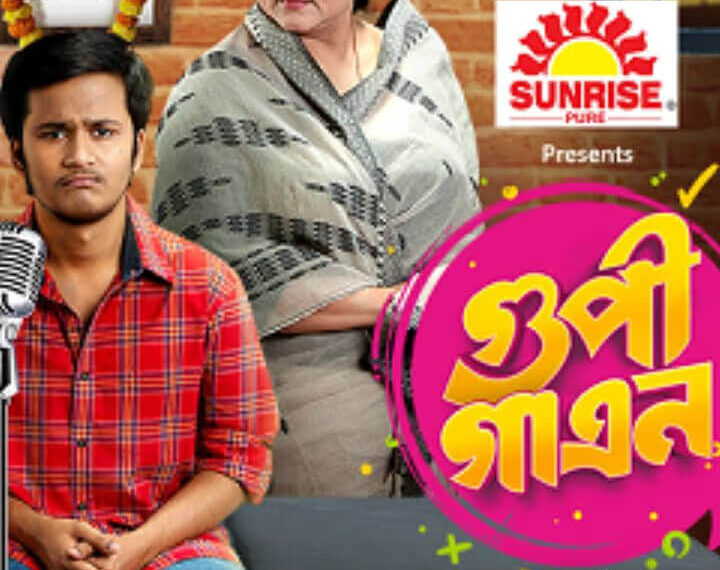Gender roles are defined and given in a patriarchal society. The ‘good’ versus the ‘bad’ girl/woman mindset in the backdrop of the film Lipstick under my Burqa and marital rape. Payal takes a hard look and rips apart these assigned roles, in the weekly column, exclusively in Different Truths.
This is a coming of age movie. That it had a long struggle with the Censor Board is no surprise. What is a surprise is that the Censor Board cited the movie being ‘Lady oriented’ and objected to ‘their fantasy above life’ as reasons why they could not certify it. No, scratch that. Actually, it is no surprise because the Board comprises only three women out of a total of eighteen and of course, the chairperson is also male. It typifies the male attitude towards women in India.
I am reminded of the Amar Chitra Katha comics of my childhood. The heroines were curvy, beautiful and sensuously dressed in what approximated period costume. But were, without fail, loyal, obedient, pure and idolised. You can argue that these comics were meant for children, and not a forum for the expression of sexuality and I would agree. However, they remain a template for Indian womanhood, even for adults.
Look at our movies. The ‘girl’ wears western clothing, indulges in all sorts of song and dance routines, but the moment she falls in love, gets engaged or married, she reverts to the true to type attire that indicates modesty and respectability in the Indian mind. The hero might very well ask, “Choli ke peeche kya hai?” [What’s behind the blouse? (Erotic imagery and innuendo intended)]. But, her answer will be the timid and submissive, “Choli mein dil hai mera” [Inside the blouse is my heart]. Look at the ridiculousness of this scenario – the heroine dressed in a very sexy, low cut choli, cavorts around with suggestive dance gestures and is asked a question full of sexual innuendo but she must be innocent and unaware of any aspect of her own sexuality. In other words, she should be virginal not just in body, but in mind. This, this is the mindset that is desired by our society. And has so been portrayed for years.
[What’s behind the blouse? (Erotic imagery and innuendo intended)]. But, her answer will be the timid and submissive, “Choli mein dil hai mera” [Inside the blouse is my heart]. Look at the ridiculousness of this scenario – the heroine dressed in a very sexy, low cut choli, cavorts around with suggestive dance gestures and is asked a question full of sexual innuendo but she must be innocent and unaware of any aspect of her own sexuality. In other words, she should be virginal not just in body, but in mind. This, this is the mindset that is desired by our society. And has so been portrayed for years.
Now, here comes a film that brings out female sexuality from not only under the Burqa but the Choli too, and literally slaps you in the face with it. How could the censors let such a ‘lady oriented’ film pass considering 99.9 per cent cinema is male oriented?
I did say it’s a coming of age movie. Not just for Indian cinema (which is mostly garbage if you look at it from a feminist point of view) but for both men and women, who have been conditioned to believe that female sexuality does not exist, except in the realm of male fantasy, and that too is attributable only to the ‘bad’ girls. The big problem: we women, ourselves are brought up to repress our sexuality and desire, to underplay them and most definitely not to act upon them. The messages given are at complete odds with our biology, and what’s more, they are at complete odds with that women really feel. So you can say that inside every ‘good’ woman exists a ‘bad’ girl who is thrumming with desire. This idea is what messes us up – who says desire or sex per se is bad?
When a man misbehaves with a woman on a bus, on the street, in the office our first reaction is a shame. The underlying thought being, ‘I must have done something to draw this kind of attention’. This is the reason for the silence, why so many women do not speak up or speak out because the blame game begins and turns back on themselves – what were YOU wearing? What did YOU say? How were YOU behaving? Our sexuality is never acknowledged. We have no role models for it, except the so called ‘bad’ girls/women. So – we are never taught to be comfortable with our sexuality, how to manage it, how to express it and obviously never ever how to be aware and proud of it. Sexy has taken a long time to come to the Indian woman, and only NOW are we beginning to revel in it and take ownership of our bodies.
See the body language of the average woman on the street. You can make out which woman feels empowered and comfortable and which one does not. It gives me a perverse delight to see my daughters and many of their friends sit how they like, stand how they like, to a large extent express themselves through their clothes and makeup and not be constrained in both exploring and living with their sexuality. This is the way it ought to be.
I have written before about how a woman is supposed to become virtually ‘asexual’ once she marries. She dares not appear ‘attractive’ to other men. So much a variance with the fantasy woman men want on their arms. We are plagued with the ‘Bhabiji’ syndrome, which typifies this. We cannot be friends with men anymore. And this becomes an even more stringent ‘Lakshman Rekha’ for women of a certain age who  must morph into ‘Buaji’ or ‘Mataji’. This becoming a universal ‘mother’ – Mataji for vegetable vendors, the postman, the milkman, the shopkeeper irked me immensely until I realised it’s a mindset that refuses to be changed. I cannot just be a woman – to be respected I must be a Mataji. And of course, the respect comes from the fact that have evolved to that exalted status, because I am no longer a sexual being.
must morph into ‘Buaji’ or ‘Mataji’. This becoming a universal ‘mother’ – Mataji for vegetable vendors, the postman, the milkman, the shopkeeper irked me immensely until I realised it’s a mindset that refuses to be changed. I cannot just be a woman – to be respected I must be a Mataji. And of course, the respect comes from the fact that have evolved to that exalted status, because I am no longer a sexual being.
My friend, who is a gynaecologist recently mentioned how even among the educated there is a widespread belief that once a woman reaches menopause she no longer has sex. Really? Does desire end, I wonder, or does desirability end? Neither, I would contend. But for Buaji, in the film (Lipstick under my Burqa) and for many women above the age of fifty, it is the end of the line. For women though, I could see that as a relief. This seminal film brings forth a soul shaking portrayal of marital rape. If any of you have ever had any doubt why we desperately need a law to deal with marital rape – this film will show you just how soul searing it is to have to undergo this heinous crime and have no recourse.
And then, of course, is all the ‘don’ts’ imposed on girls and women. Don’t wear this. Don’t go there. Don’t listen to this. Don’t watch that. Don’t be friends with him/her. Don’t be late. Most of these are ‘for your own good’, but really they exist to maintain status quo and keep a woman in her place. That ‘place’ cuts across all strata of society, all religions, across urban and rural landscapes. The rules may differ but the rules exist everywhere. Here it is then – for women to be free, they have to be free to live the lives they want to on their own terms.
The biggest objection that the Censor Board had been to the ‘sex scenes’. It completely turns the scenario on its head for us to see a female protagonist initiating sex, enjoying sex and not being either ashamed or shamed for it. It’s time that we grew up. Women experience desire too. Women can get horny. Women want sex, sure, but on our terms. Which means with the man we choose, when we choose and how we choose. Unashamedly, unabashedly and confidently.
Here comes the twist in the tale – in the final endgame our idea of sex is still polluted by male fantasies fed to us from generations. We will get around to dealing with that. For the moment just know what we feel and help us to get rid of that mental ‘Burqa’ imposed on us.
©Payal Talreja
Photos from the Internet.
#EmpoweredWoman #BehenjiSyndrome #SexualityAfterMarriage #IndianCensorBoard #IndianMovies #SexualityAndSensualityOfIndianWomen #OwningOurBodies #LipstickUnderMyBurkha #FeministAtFifty #DifferentTruths







 By
By

 By
By